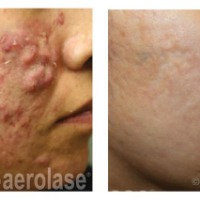A coastal country in East Africa, Tanzania has one of the highest rates of albinism in the world and is home to the highest percentage of albinos in Africa. According to the chair of the International Foundation for Dermatology (IFD) Professor Roderick Hay, "Albinism is a genetic alteration or mutation in the genes which encode the enzymes involved in the manufacture of the pigment chemical, melanin, in the human skin." The lack of melanin in people who have albinism leave them greatly exposed to the damaging effects of the sun, especially in Africa.

Which is why The International League of Dermatological Societies (ILDS), including the American Academy of Dermatology (AAD) and Stiefel, a GSK company, have teamed together to launch Hats On For Skin Health to raise funds for the purchase of hats and other sun-protective items for albinos living in Tanzania. In a recent interview with Stiefel president Bill Humphries, "Worldwide, albinism affects about 1 in every 20,000 people, " he says, "But in Tanzania, it's higher than anywhere else in the world: it's 1 in 1,429 or about a total of 30,000 people afflicted with albinism in Tanzania."
"Africa has a high incidence of albinism," says Professor Hay, "Part of the explanation for this is that there are different genetic varieties of albinism, some of which appear only patients of African ancestry. However it is not clear to any of us why the overall incidence is so high in Tanzania." Responsible for developing projects of the IFD such as patient and physician education, Professor Hay has been charged to oversee the work of the Regional Dermatology Training Centre in Moshi Tanzania.
According to Professor Hay, different varieties of albinism are determined by the severity of this mutation and which part of the chemical pathway is affected. Other melanin containing tissue may also be affected - notably the eye ? so visual impairment may occur in albinos. Since the production of melanin is reduced or absent, individuals with the disorder are much paler than their peers.
Due to exposure of the hot African sun, albinos in Tanzania often develop skin cancer early in life and less than 2% live to see their 40th birthday. Albinos in Africa may face a life of danger because of the sun's rays, but coupled with serious prejudices and superstitions, their lives are severely marginalized and many lead impoverished lives. "Albinos in Tanzania are hunted down because there is a belief that they have magical power in their blood and their bones help prevent or cure diseases," states Humphries. Often, the only work available to this disenfranchised group of people is manual labor in the hot African sun, which could spell disaster for their already compromised skin.
The Tanzania government is taking steps to protecting the albinos by taking firmer measures in prosecuting those involved in murders of albinos. They have organized a census of existing albinos and tasked police forces to draw up local plans to protect albino children. A measure to create a National Advisory Council for Persons with Disabilities in Tanzania has been approved. Yet persons afflicted with albinism still need basic sun protection be be able to work and live in Africa.
Hats On For Skin Health is a major global skin health initiative supported by the ILDS, AAD and Stiefel to help the tens of thousands of albinos living in Tanzania by providing the most basic and effective form of sun protection: the hat. "At the base of the Pyramid of [Sun] Protection is proper clothing," says Humphries, "The hat protects the most sun damage prone areas: the face, eyes, nose, ears and scalp. We see the hat as an opportunity to begin the discussion of proper education about skin health and taking care of their skin."
Donations are currently being accepted for Hats On For Skin Health.






